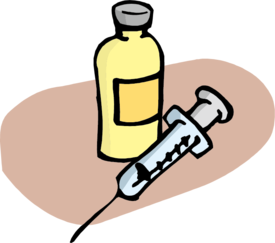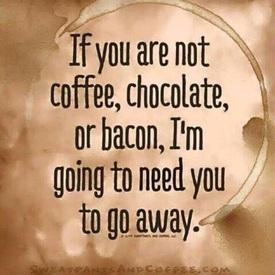We are pleased to announce that as of March 4, 2025, an updated Rich Text Editor has been introduced in the MyFitnessPal Community. To learn more about the changes, please click here. We look forward to sharing this new feature with you!
My crazy metabolism...I think

greenautumn17
Posts: 322 Member
Alright. So, Thursday morning early I had a BPC to start my day. (My FBG was 117) Then we drove 3 hours to the mountains where we hiked and enjoyed nature for another three hours. Can anyone say sore muscles?  Anyway, I drank plenty of water, but ate nothing.
Anyway, I drank plenty of water, but ate nothing.
By the time we drove into town to find lunch, I felt horrible! I figured my BG had to be low after all that exercise and no food and given how bad I felt...I mean "passing out" bad. But no. My BG was 120. I nibbled some pork rinds for the salt and soon felt a little better.
Anyway, after lunch - which had more carbs in the form of veggies than I usually consume - and swimming in the hotel pool, my BG had dropped to 102. I was happy.
Well, we went to dinner (steak and shrimp, some broccoli) and then to a play, and back to the hotel. My FBG Friday am, 14 hours post dinner, was 144! Now, I had taken some Aleve for my headache (I assume from the sun) and in advance of the aches I KNEW my body would have the morning after such intense exercise, but would it really RAISE my FBG so high? Worse still, my FBG on Saturday and this morning has been 133. I am still nursing sore muscles, but really?
What is going on and how can I fix it? Any ideas?
Oh, and absolutely no weight lost either. Sigh...
By the time we drove into town to find lunch, I felt horrible! I figured my BG had to be low after all that exercise and no food and given how bad I felt...I mean "passing out" bad. But no. My BG was 120. I nibbled some pork rinds for the salt and soon felt a little better.
Anyway, after lunch - which had more carbs in the form of veggies than I usually consume - and swimming in the hotel pool, my BG had dropped to 102. I was happy.
Well, we went to dinner (steak and shrimp, some broccoli) and then to a play, and back to the hotel. My FBG Friday am, 14 hours post dinner, was 144! Now, I had taken some Aleve for my headache (I assume from the sun) and in advance of the aches I KNEW my body would have the morning after such intense exercise, but would it really RAISE my FBG so high? Worse still, my FBG on Saturday and this morning has been 133. I am still nursing sore muscles, but really?
What is going on and how can I fix it? Any ideas?
Oh, and absolutely no weight lost either. Sigh...
0
Replies
-
greenautumn17 wrote: »Alright. So, Thursday morning early I had a BPC to start my day. (My FBG was 117) Then we drove 3 hours to the mountains where we hiked and enjoyed nature for another three hours. Can anyone say sore muscles?
 Anyway, I drank plenty of water, but ate nothing.
Anyway, I drank plenty of water, but ate nothing.
By the time we drove into town to find lunch, I felt horrible! I figured my BG had to be low after all that exercise and no food and given how bad I felt...I mean "passing out" bad. But no. My BG was 120. I nibbled some pork rinds for the salt and soon felt a little better.
Anyway, after lunch - which had more carbs in the form of veggies than I usually consume - and swimming in the hotel pool, my BG had dropped to 102. I was happy.
Well, we went to dinner (steak and shrimp, some broccoli) and then to a play, and back to the hotel. My FBG Friday am, 14 hours post dinner, was 144! Now, I had taken some Aleve for my headache (I assume from the sun) and in advance of the aches I KNEW my body would have the morning after such intense exercise, but would it really RAISE my FBG so high? Worse still, my FBG on Saturday and this morning has been 133. I am still nursing sore muscles, but really?
What is going on and how can I fix it? Any ideas?
Oh, and absolutely no weight lost either. Sigh...
You're describing my classic "Liver Dump" I usually get the sweats along with it too.
I start with a big breakfast with 3 carbs and work or shop for hour, I start getting shaky but keep going (big mistake) til lunchtime 150 to 180 BG. It takes a few days to get back to normal.
The big mistake I make is to forget a snack, just a little something works great for me, don't laugh!
2 berry Tums followed a little later by a large cup of chicken bouillon.
I would have never thought 3 carbs could make such a drastic difference.
Oh remember, sore muscles are holding onto water.
0 -
I was hoping after the muscles feel better I would see weight loss, but so far not yet.KenSmith108 wrote: »
Oh remember, sore muscles are holding onto water. 0
0 -
More sodium will help with the feeling bad, but unless you're getting like a gram from the pork rinds, you're probably not getting enough.
Exercise definitely raises blood sugar levels. And so will anything that raises your cortisol levels.
Your ketone levels also rise after exercise, and that means your sodium needs increase as you lose ketones (and sodium for cation coverage) in the urine.
I posted this before: glucose and ketone effects of exercise: 0
0 -
I didn't know exercise raised BG, but I was about to post about cortisol raising it. Gonna go do some research, this is fascinating.0
-
jennybird99 wrote: »I didn't know exercise raised BG, but I was about to post about cortisol raising it. Gonna go do some research, this is fascinating.
You and me both, exercise depletes the glucose in your blood, then the glycogen in your muscles.
That's what "Hitting the wall" in marathons is about.
Diabetics are instructed to carry glucose with them while exercising to combat the effect before it gets too extreme.
It has a fancy name Hypoglycemia.
Sometimes the brain panics ( it doesn't like being starved) and it has your liver dump glucose.
It's very fast sugar.
This is where the raise in blood sugar comes from.
It's common practice to snack before exercise just to avoid the low blood sugar,
in some circles after exercise to replace the glycogen too.
So, I'm having trouble saying exercise raises BG. I'd rather say exercise could contribute to raised blood
sugar if not planned for correctly.
0 -
KenSmith108 wrote: »jennybird99 wrote: »I didn't know exercise raised BG, but I was about to post about cortisol raising it. Gonna go do some research, this is fascinating.
You and me both, exercise depletes the glucose in your blood, then the glycogen in your muscles.
That's what "Hitting the wall" in marathons is about.
Sort of. Exercise increases DEMAND for glucose. The increase in demand is signaled via hormones to the liver. The liver breaks down glycogen to glucose in response. That glucose gets dumped in the blood, and that's why blood levels rise.
Hitting the wall is liver glycogen depletion.
Your body also attempts to replenish glycogen stores via gluconeogenesis. Fat metabolism provides some glycerol for that process, but most of the substrate is protein. That's why some people consume some protein after exercise -- to reduce catabolism of muscle.
In any case, there's no need to theorize when we have direct empirical data from a metabolic chamber such as the chart I posted above. 0
0 -
In any case, there's no need to theorize when we have direct empirical data from a metabolic chamber such as the chart I posted above.
There's no theory about hypoglycemia and exercise. I've found myself sitting on the ground with a bg# of 40 or lower from exercising on more than one occasion. I'm sure if I had the direct empirical data in my hand at that time it would have made a whole world of difference.
I think I'll leave it at I'm not in agreement with your data, I have to yield to my first hand experience.
0 -
Greenautum…an article I posted recently by Kresser shows we on LCHF diet have a HIGHER BG than others on SAD..so yours is going to be a little bit higher and you have to accept that while in LCHF
I have the same issue with higher than normal FBG…but my MD has me only looking at post meal reading ..and those are normal ALWAYS <140-160 even with higher carb veggie meal……my one carb treat on occasion is a big bowl of popcorn..34 gr..plus the salt…So I show a higher FBG next morning. or having a berry fruit & ricotta dessert the night before.
doesn't mean you are pre diabetic unless you have been told you are.
http://chriskresser.com/when-your-normal-blood-sugar-isnt-normal-part-1/
http://chriskresser.com/when-your-“normal”-blood-sugar-isn’t-normal-part-2/0 -
Good point, Ken. The chart above is from a guy with good glucose control (and keto-adaptation). Different people will react differently, especially if you have impaired glucose control (e.g., diabetes). That's an issue with insulin, not exercise.0
-
KETOGENICGURL wrote: »Greenautum…an article I posted recently by Kresser shows we on LCHF diet have a HIGHER BG than others on SAD..so yours is going to be a little bit higher and you have to accept that while in LCHF
I have the same issue with higher than normal FBG…but my MD has me only looking at post meal reading ..and those are normal ALWAYS <140-160 even with higher carb veggie meal……my one carb treat on occasion is a big bowl of popcorn..34 gr..plus the salt…So I show a higher FBG next morning. or having a berry fruit & ricotta dessert the night before.
doesn't mean you are pre diabetic unless you have been told you are.
http://chriskresser.com/when-your-normal-blood-sugar-isnt-normal-part-1/
http://chriskresser.com/when-your-“normal”-blood-sugar-isn’t-normal-part-2/
What is with this thread???
LCHF is touted as one of the best ways to get excellent blood glucose control.
For listening to the ADA's food pyramid for 32 years, I earned myself neuropathy, retinopathy and
an insulin dependency. 140 -160 was OK with me too.
The only time now I go over 120 is if I forget my meds. (senior plight)
The rest of the time I hover around 100.
I try to keep my carbs under 23g or 5% total cals.
I would definitely say I don't have to accept higher blood glucose numbers,
I would say I just have to work a little harder to get good blood glucose control.
0 -
I have been so low carb for five months now that there should be little to no glycogen stores for my liver to convert into glucose after not eating for over 12 hours (except the BPC), so what was my body converting to glucose? Does fat convert to glucose? (My version of BPC has butter, salt, and CO.)
It wasn't super hot out, so I wasn't sweating a lot. I did not feel like I was urinating more than usual either. I don't know why, but the pork rinds seemed to help, I just assumed it was sodium. I said I felt like passing out, not that I did. I ate lunch and felt fine. Fine enough to swim in the teeny tiny hotel pool. If it had been any worse, I would definitely have sought help. I just do not understand why glucose would go up while essentially fasting and exercising more strenuously than I am used to. In my nonscientific mind, wouldn't my body use up the glucose already circulating and thus lower it to under 100?
And then to have it EVEN HIGHER in the morning was doubly perplexing.0 -
I think they can explain it better than me.
http://community.diabetes.org/t5/Adults-Living-with-Type-2/What-s-a-Liver-Dump/td-p/1132980 -
Your glycogen stores are never completely depleted, and they are partially restored via gluconeogenesis. This is true even if your carb intake is zero, and it even happens during sleep and fasting.
Your body will make glucose to meet demand. GNG primarily converts protein to glucose. The process won't directly convert fat to glucose, but it will utilize the leftovers from fat oxidation.
If you have poor blood sugar control, it can be either a problem of poor uptake (e.g., in skeletal muscle) or poor control over liver glycogen control and gluconeogenesis. Some people like the analogy of a clogged drain in the muscle case and a dripping faucet in the liver case.
In any case, your glucose response may be normal. The liver is supposed to increase glucose supply as demand goes up. That's one of its jobs. 0
0 -
When I was diabetic, exercise increased my blood glucose level and alcoholic beverages decreased it. Neither made sense to me. Monitoring the levels several times per day trying to keep the levels below 100 drove me crazy. I chose to continue to exercise and discontinue alcoholic beverages and began eating very low carb. Within a couple of weeks, I was no longer diabetic. My blood sugars were still very erratic so my doctor made me stop checking.0
-
Your glycogen stores are never completely depleted, and they are partially restored via gluconeogenesis. This is true even if your carb intake is zero, and it even happens during sleep and fasting.
Your body will make glucose to meet demand. GNG primarily converts protein to glucose. The process won't directly convert fat to glucose, but it will utilize the leftovers from fat oxidation.
If you have poor blood sugar control, it can be either a problem of poor uptake (e.g., in skeletal muscle) or poor control over liver glycogen control and gluconeogenesis. Some people like the analogy of a clogged drain in the muscle case and a dripping faucet in the liver case.
In any case, your glucose response may be normal. The liver is supposed to increase glucose supply as demand goes up. That's one of its jobs.
Totally my problem but in the am (dawn phenom). My sugars are normal all day but insane in the am. Sometimes they are as high as 170 on waking (fasting) when the night before they were 100. How on earth can they go up so high, why do they do it only in the am, and how can I stop it? Ideas? I've tried eating protein right before bed, but that doesn't seem to do a thing. I typically sleep eight hours.0 -
JessicaLCHF wrote: »Your glycogen stores are never completely depleted, and they are partially restored via gluconeogenesis. This is true even if your carb intake is zero, and it even happens during sleep and fasting.
Your body will make glucose to meet demand. GNG primarily converts protein to glucose. The process won't directly convert fat to glucose, but it will utilize the leftovers from fat oxidation.
If you have poor blood sugar control, it can be either a problem of poor uptake (e.g., in skeletal muscle) or poor control over liver glycogen control and gluconeogenesis. Some people like the analogy of a clogged drain in the muscle case and a dripping faucet in the liver case.
In any case, your glucose response may be normal. The liver is supposed to increase glucose supply as demand goes up. That's one of its jobs.
Totally my problem but in the am (dawn phenom). My sugars are normal all day but insane in the am. Sometimes they are as high as 170 on waking (fasting) when the night before they were 100. How on earth can they go up so high, why do they do it only in the am, and how can I stop it? Ideas? I've tried eating protein right before bed, but that doesn't seem to do a thing. I typically sleep eight hours.
Pretty good explanation of the hormones involved here:
http://dtc.ucsf.edu/types-of-diabetes/type2/understanding-type-2-diabetes/how-the-body-processes-sugar/blood-sugar-other-hormones/
Insulin and glucagon are the main BG control signals. If your BG is fine most of the time, that suggests that those two signals are working pretty well.
The big difference in the morning is that your cortisol level is at a peak -- similar to the exercise effect, but the level is even higher in the morning than it is during exercise. Insulin is telling your liver to stop supplying glucose, but the cortisol is blunting the effect of insulin. That's normal, but in your case, your liver is either less sensitive to insulin than most or more sensitive to cortisol (or your cortisol could be higher than normal).
I don't know of any easy fix, but has your doc ever suggested metformin? If your HbA1c is OK, it might not even be worth worrying about.0 -
BG naturally fluctuates. OP, don't read too much into it, unless you're doing and getting CONSISTENT numbers out of range that can't be explained by natural fluctuations.
I think this is better to consult with medical advice, so you can get tailored response to your specific case, rather than ask the internet, though.0 -
JessicaLCHF wrote: »Your glycogen stores are never completely depleted, and they are partially restored via gluconeogenesis. This is true even if your carb intake is zero, and it even happens during sleep and fasting.
Your body will make glucose to meet demand. GNG primarily converts protein to glucose. The process won't directly convert fat to glucose, but it will utilize the leftovers from fat oxidation.
If you have poor blood sugar control, it can be either a problem of poor uptake (e.g., in skeletal muscle) or poor control over liver glycogen control and gluconeogenesis. Some people like the analogy of a clogged drain in the muscle case and a dripping faucet in the liver case.
In any case, your glucose response may be normal. The liver is supposed to increase glucose supply as demand goes up. That's one of its jobs.
Totally my problem but in the am (dawn phenom). My sugars are normal all day but insane in the am. Sometimes they are as high as 170 on waking (fasting) when the night before they were 100. How on earth can they go up so high, why do they do it only in the am, and how can I stop it? Ideas? I've tried eating protein right before bed, but that doesn't seem to do a thing. I typically sleep eight hours.
Pretty good explanation of the hormones involved here:
http://dtc.ucsf.edu/types-of-diabetes/type2/understanding-type-2-diabetes/how-the-body-processes-sugar/blood-sugar-other-hormones/
Insulin and glucagon are the main BG control signals. If your BG is fine most of the time, that suggests that those two signals are working pretty well.
The big difference in the morning is that your cortisol level is at a peak -- similar to the exercise effect, but the level is even higher in the morning than it is during exercise. Insulin is telling your liver to stop supplying glucose, but the cortisol is blunting the effect of insulin. That's normal, but in your case, your liver is either less sensitive to insulin than most or more sensitive to cortisol (or your cortisol could be higher than normal).
I don't know of any easy fix, but has your doc ever suggested metformin? If your HbA1c is OK, it might not even be worth worrying about.
Thanks. I'll check the link. Was on metformin but with eating low carb it dropped my BS too low and I had a low sugar episode, almost passed out, weak, confused... So she took me off about a year ago. My a1c started at over nine, but my last one was six... As long as I eat low carb.0
This discussion has been closed.






